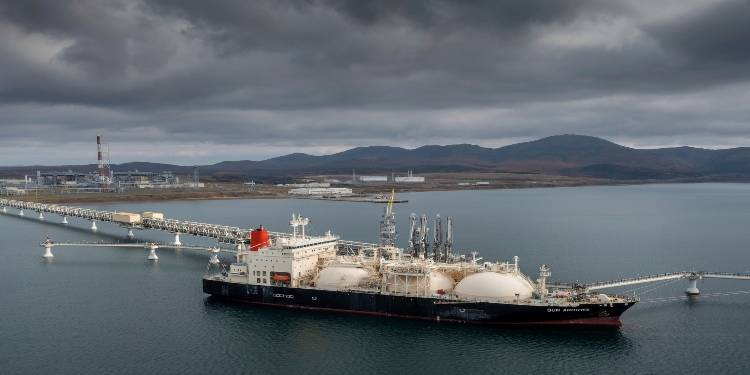
Petroleum Minister Musadiq Malik has announced that negotiations are underway to purchase a second supply of discounted Russian crude oil, emphasizing the effectiveness of a prior agreement to ease the country's severe financial need.
Malik said that despite obstacles including greater freight and insurance costs and the fact that Russian Urals produced more furnace oil after refining than Arabian light oil, the first shipment of 100,000 tonnes of Russian Urals had been successfully tested at the government-run Pakistan Refinery Limited (PRL).
He said that no situation could result in the nation "not benefiting" from Russian crude. "It will still be advantageous to us. We are finalizing another cargo," he added.
The quantity of oil up for discussion for the second delivery was not made public by Mr. Malik. Pakistan has also withheld information on the cost or discount of the initial shipment.
The first shipment, which was scheduled for April, arrived at the port of Karachi last month and was paid for in Chinese money.
Pakistan entered into the agreement with Russia in part to save its foreign exchange reserves, which are mostly used for oil purchases.
With its central bank reserves barely covering a month's worth of restricted imports, the country has been suffering from a severe balance of payments problem. Before receiving a $3 billion rescue from the International Monetary Fund late last month, it was on the verge of default.
As it diverts oil from Western markets due to the Ukraine crisis, Moscow now has a new market to add to its rising sales to India and China.
Analysts said the cheap crude gives Pakistan a chance at a time of financial difficulty despite being a longtime Western ally and the arch-rival of neighboring India, which historically is closer to Moscow.
Pak-Arab Refinery Limited (PARCO), a for-profit organization, has also been urged to buy Russian oil, according to Malik. "We've also asked the board of PARCO to take it into consideration and import it," he added.
The majority of Pakistan's foreign payments come from energy imports. According to statistics from analytics company Kpler, Islamabad imported 154,000 barrels of oil per day (bpd) in 2022, around the same as in the previous year.
Saudi Arabia, the biggest exporter in the world, and the United Arab Emirates were the primary suppliers of the oil.
Russian crude is desired by Islamabad to make up one-third of all oil imports.
Malik said that despite obstacles including greater freight and insurance costs and the fact that Russian Urals produced more furnace oil after refining than Arabian light oil, the first shipment of 100,000 tonnes of Russian Urals had been successfully tested at the government-run Pakistan Refinery Limited (PRL).
He said that no situation could result in the nation "not benefiting" from Russian crude. "It will still be advantageous to us. We are finalizing another cargo," he added.
The quantity of oil up for discussion for the second delivery was not made public by Mr. Malik. Pakistan has also withheld information on the cost or discount of the initial shipment.
The first shipment, which was scheduled for April, arrived at the port of Karachi last month and was paid for in Chinese money.
Pakistan entered into the agreement with Russia in part to save its foreign exchange reserves, which are mostly used for oil purchases.
With its central bank reserves barely covering a month's worth of restricted imports, the country has been suffering from a severe balance of payments problem. Before receiving a $3 billion rescue from the International Monetary Fund late last month, it was on the verge of default.
As it diverts oil from Western markets due to the Ukraine crisis, Moscow now has a new market to add to its rising sales to India and China.
Analysts said the cheap crude gives Pakistan a chance at a time of financial difficulty despite being a longtime Western ally and the arch-rival of neighboring India, which historically is closer to Moscow.
Pak-Arab Refinery Limited (PARCO), a for-profit organization, has also been urged to buy Russian oil, according to Malik. "We've also asked the board of PARCO to take it into consideration and import it," he added.
The majority of Pakistan's foreign payments come from energy imports. According to statistics from analytics company Kpler, Islamabad imported 154,000 barrels of oil per day (bpd) in 2022, around the same as in the previous year.
Saudi Arabia, the biggest exporter in the world, and the United Arab Emirates were the primary suppliers of the oil.
Russian crude is desired by Islamabad to make up one-third of all oil imports.

